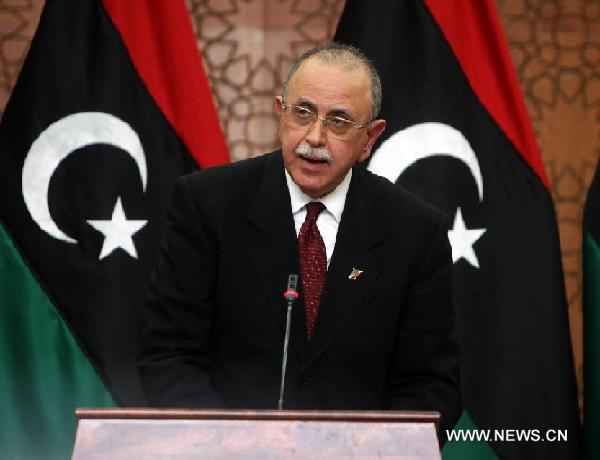Libya celebrates independence day for 1st time in 42 years
 0 Comment(s)
0 Comment(s) Print
Print E-mail
Xinhua, December 25, 2011
E-mail
Xinhua, December 25, 2011
|
|
|
Abdul al-Raheem al-Keib, Libya's interim prime minister, delivers a speech on the theme of the celebration of the liberation of Libya and the independence from Italian colonialism in Tripoli, Libya, on Dec. 24, 2011. [Xinhua/Hamza Turkia] |
Libya marked its 60th anniversary of independence on Saturday, reviving a celebration that has been scrapped for more than 40 years.
Prime Minister Abdul al-Raheem al-Keib said at the ceremony that the transitional government would provide nationals, especially soldiers involved in the fight to end Muammar Gaddafi's rule, with more job opportunities.
The fighters could join the national army, security forces, or other national departments according to their contributions in the war. The transitional government would also offer subsidies for those who opt to start their own businesses.
Al-Keib noted that the transitional government faced tremendous challenges in rebuilding the war-ravaged country, especially security threats from widespread holding of weapons by civilians.
To improve the security situation, the prime minister said, the transitional government planned to create jobs to get more people employed, and gradually get back the weapons.
Libya won independence from Italy's rule and formed the United Libyan Kingdom on Dec. 24, 1951 under late King Idris. Gaddafi scrapped the independence day celebration when he came to power and abolished the monarchy in 1969.






